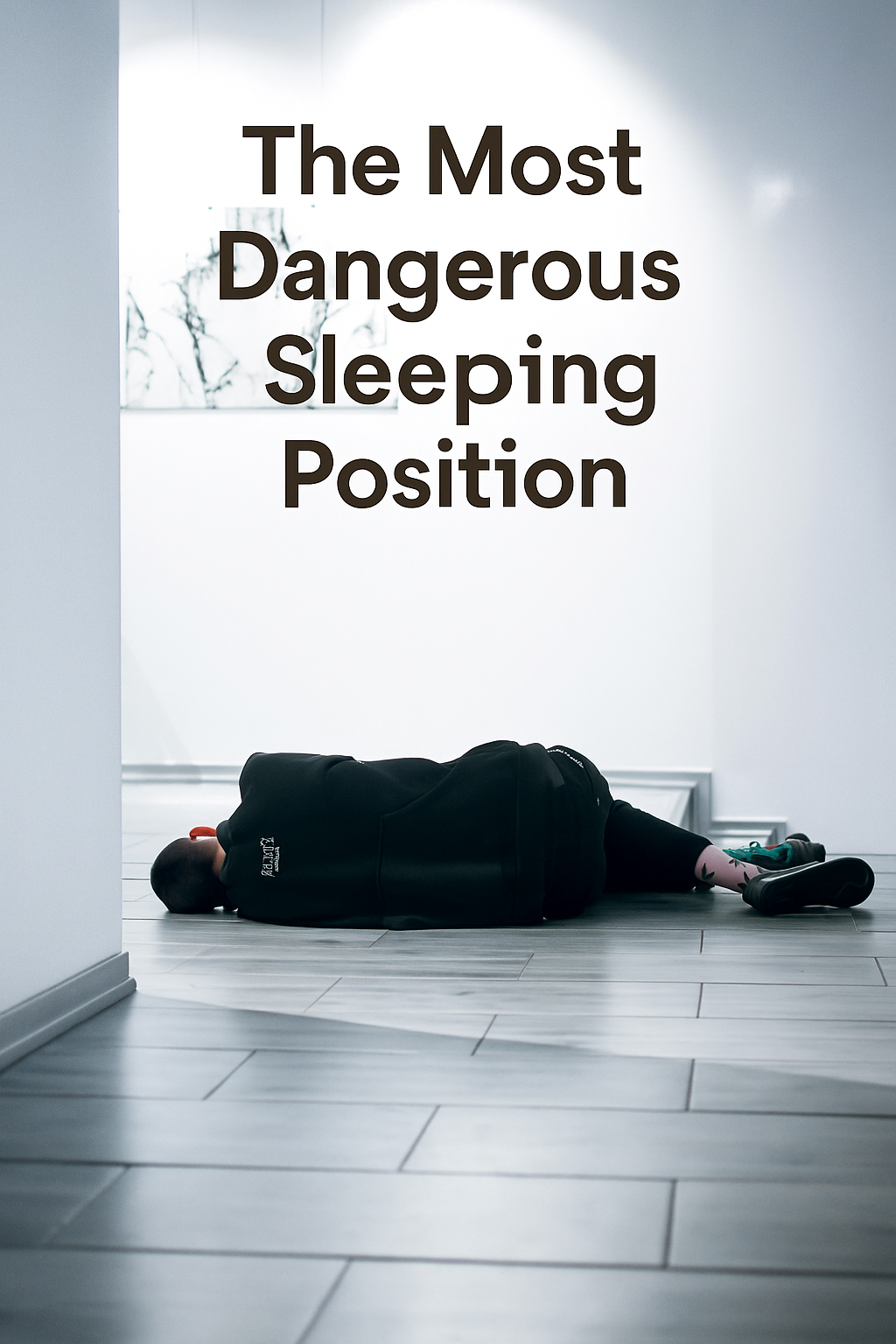We all know that sleep is essential — it’s when your body repairs, resets, and restores itself. But here’s what many overlook: the position you sleep in could be quietly harming your health night after night, without you even realizing it.
Let’s explore the worst sleeping position, the science behind its risks, and how to sleep smarter for a healthier body and mind.
🚫 The Sleeping Position Experts Advise Against: Sleeping on Your Back
Surprised? You’re not alone. Although often praised for good posture, back sleeping can actually be harmful for many people — and even dangerous for some.
⚠️ Why Sleeping on Your Back Can Be Risky
- It Can Trigger Sleep Apnea
When you lie flat, your tongue and soft palate may fall backward, narrowing your airway. This can cause snoring, pauses in breathing, and reduced oxygen levels — especially for those with undiagnosed sleep apnea. - It Can Cause Back and Neck Pain
Without proper lumbar support, your spine loses its natural curve. This leads to morning stiffness, tension headaches, or chronic pain in the back, shoulders, and neck. - It Can Worsen Heartburn and Acid Reflux
For people with GERD, sleeping on the back can make it easier for stomach acid to flow upward into the throat, increasing discomfort.
😴 Other Common But Risky Sleep Positions
- ❌ Fetal Position (Too Tight) – Curling up too much can restrict breathing and strain joints.
- ❌ Always Sleeping on One Side – Favors one side of the body, causing hip and shoulder imbalance.
- ❌ Spooning All Night – Romantic but not practical; it strains the spine and puts pressure on the lower back.
✅ Healthier Ways to Sleep
🌙 Side Sleeping (With Proper Support)
Often the best position for comfort and spine alignment. Use a medium-firm pillow and alternate sides regularly.
🌙 Gentle Fetal Position
A slightly curled pose eases back tension and supports spinal alignment — just don’t curl up too tightly.
🌙 Pillow Between the Knees
This small adjustment keeps your hips and spine aligned and reduces lower back pressure.
🛏️ Smart Sleep Habits for Better Rest
- Choose a Supportive Mattress – Medium-firm mattresses offer ideal spinal support.
- Stick to a Routine – Go to bed and wake up at consistent times to strengthen your body’s rhythm.
- Avoid Late Meals – Finish dinner at least 2–3 hours before bed to prevent reflux.
- Slightly Elevate Your Head – Helps reduce snoring and heartburn for a calmer night’s rest.
⚠️ Final Thoughts
Good sleep isn’t just about how long you rest — it’s about how you rest.
The wrong position can disrupt breathing, strain your spine, and reduce sleep quality.
But with a few mindful changes, you can transform restless nights into restorative sleep.
Tonight, ask yourself:
- Is your sleep position supporting or harming your body?
- Are you waking up energized or still tired?
Sleep smarter. Wake stronger.
Because quality sleep is your nightly investment in long-term health. 🌙✨

